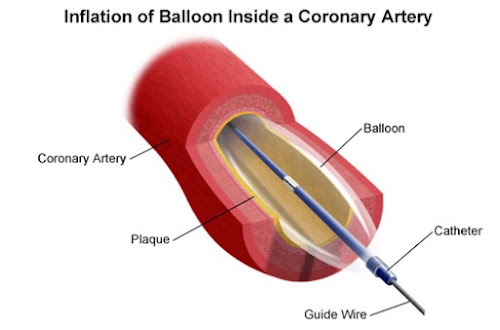ELECTROCARDIOGRAM

An electrocardiogram (ECG), sometimes abbreviated EKG, is an important tool in detecting heart disease and pinpointing where difficulty lies when a problem is present. An electrocardiogram is a noninvasive test in which electrode patches are attached to your skin to measure electrical impulses given off by your heart. The electrical impulses, which cause your heart to contract and relax, are transmitted to an electrocardiograph machine. They typically are recorded in the form of waves, which can be displayed on graph paper or a monitor. Each wave represents the electrical current in a different area of your heart. A letter in the alphabet refers to each wave (deflection). the P wave represents the electrical current in the atria. The QRS waves (complexes) represent the electrical current travelling in the ventricles. the T wave represents the electrical recovery period of the ventricles. by interpreting the patterns of these waves, your doctor can diagnose several abnormal heart...











